“Demonstrating Research Impact: Insights from the UK’s Research Excellence Framework” held on January 20, 2022
On January 20, 2022, JANU, in collaboration with Universities UK and Research England, the UK’s research funding agency, held an online lecture on the UK’s research evaluation system REF and social impact evaluation, “Demonstrating Research Impact: Insights from the UK’s Research Excellence Framework.”
In the fourth medium-term objective period starting in FY2022, each national university is required to analyze its practical efforts to create social impact and to strengthen them strategically. The UK’s research evaluation system, REF (Research Excellence Framework), is one of the model cases. Therefore, this lecture was held to contribute to the approaches of national universities by providing examples of the purpose and concept of the REF, methods of evaluating, understanding, and appropriately explaining the social impact of research to stakeholders. More than 200 people from 50 universities attended, showing a strong interest in the topic.
The lecture was led by Dr. HAYASHI Takayuki, Director, Science, Technology and Innovation Policy Program; Professor, National Graduate Institute for Policy Studies. The first part of the lecture was the opening remarks by Dr. USHIKI Tatsuo, Chairperson of the International Exchange Committee of JANU (President of Niigata University), which included the significance of understanding the REF and its social impact. Followed a speech by Mr. David Sweeney, Executive Chair of Research England, giving an overview of the REF and expressing his hope that it would contribute to considering a system in Japan.
Dr. HAYASHI then gave a presentation on the Japanese research assessment landscape and mentioned what Japan should consider in the future and what it should learn from the UK.
In the second part, ” Overview of the REF process,” Dr. Catriona Firth, Associate Director for Research Environment, Research England, explained the process of social impact evaluation, the evaluation system, and the definition of impact. Then Professor Naren Barfield, Deputy Vice-Chancellor and Provost, Royal College of Art, gave a presentation titled “Evaluation of REF impact case studies” on the specific flow of evaluation work based on his experience of evaluating impact case studies as a panel member.
In the third session, case study presentations from UK Universities, Professor Taeko Wydell, Professor of Cognitive Neuroscience, Brunel University, and Dr. Neil McDonnell, LKAS Fellow for Virtual and Augmented Reality, Centre for the Study of Perceptual Experience Philosophy, University of Glasgow, presented their experiences in building social impact related to their research from the standpoint of researchers in the sciences and humanities.
In the subsequent case study, ” Institutional perspectives on the strategic value of the REF and impact case studies,” Professor Anthony Hollander, Pro-Vice-Chancellor for Research & Impact, University of Liverpool, introduced the strategic value of the REF as a valuable tool for identifying and benchmarking areas of strength, and as an opportunity to revitalize and upgrade research and research support activities. In her case study, ” Institutional perspectives on the REF process,” Ms. Rose-Marie Barbeau, Research Impact Manager, University of Glasgow, talked about the importance of developing human resources and other systems related to the REF and the importance of working as the entire university. Then Professor Matt Flinders, Chair of University Policy Engagement Network, Professor of Politics, University of Sheffield, spoke about the importance of balancing academic excellence and social impact. He also explained that the REF system is essential for scientists to fulfill their mission to contribute to society.
In the panel discussion based on the explanations in the second and third parts, there was a lively exchange of opinions on the design of the impact evaluation system, the development of the system within the university, the workload in preparing case studies, and the differences in impact among research fields.
In his closing remarks, Dr. YAMAGUCHI Hiroki, Senior Managing Director of JANU, expressed his hope that, although the lecture was in the form of learning from the UK, Japan and the UK will be able to learn from each other by designing Japan’s own social impact evaluation in the future.
In addition, Professor Janet Beer, Vice Chancellor, University of Liverpool, pointed out that the REF system has been undergoing changes and that promoting these changes will lead to world-class research. The significance of online knowledge sharing was also emphasized.
It will be the first experience for a Japanese national university to conduct a social impact evaluation. This lecture provided a valuable opportunity to discuss the significance and challenges of effectively presenting the university’s resources to society and the development of internal systems.
JANU will continue to cooperate with university organizations in the UK and plan meaningful exchange programs.
【Program】
【Opening remarks slides】
【Presentation slides】
【Case Studies slides】
- Dr. Catriona Firth, Associate Director for Research Environment, Research England
- Professor Naren Barfield, Deputy Vice-Chancellor and Provost, Royal College of Art
- Professor Taeko Wydell, Professor of Cognitive Neuroscience, Brunel University
- Dr. Neil McDonnell, LKAS Fellow for Virtual and Augmented Reality, Centre for the Study of Perceptual Experience Philosophy, University of Glasgow
- Professor Anthony Hollander, Pro-Vice-Chancellor for Research & Impact, University of Liverpool
- Ms. Rose-Marie Barbeau, Research Impact Manager, University of Glasgow
- Professor Matt Flinders, Chair of University Policy Engagement Network, Professor of Politics, University of Sheffield
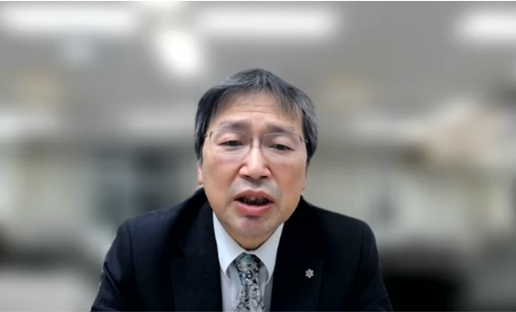
Dr. USHIKI Tatsuo making the opening remarks |
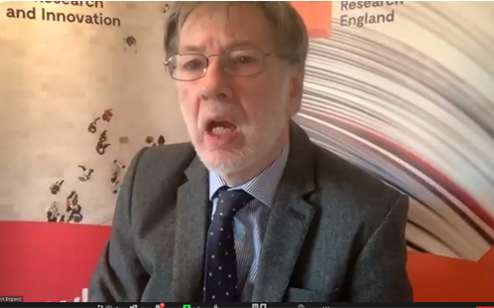
Mr. David Sweeney making the opening remarks |
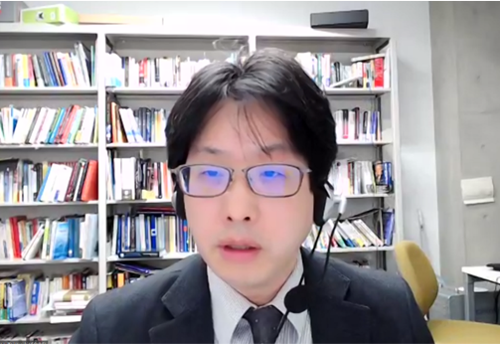
Dr. HAYASHI Takayuki, the moderator |

Dr. Catriona Firth |
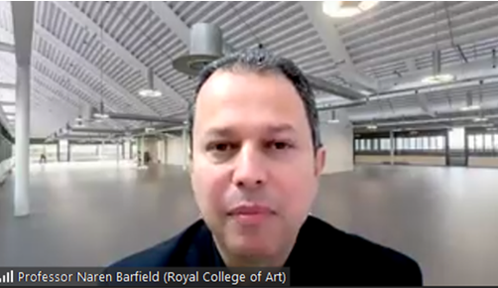
Professor Naren Barfield |
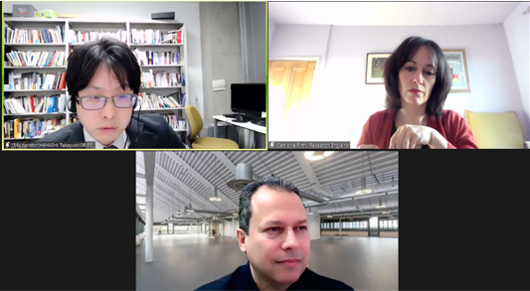
Panel discussion in the second part |
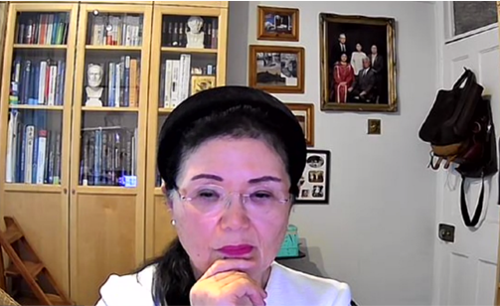
Professor Taeko Wydell |

Dr. Neil McDonnell |
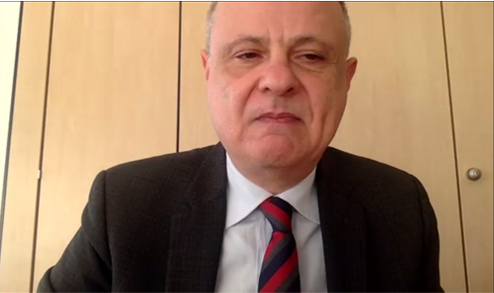
Professor Anthony Hollander |

Ms. Rose-Marie Barbeau |

Professor Matt Flinders |
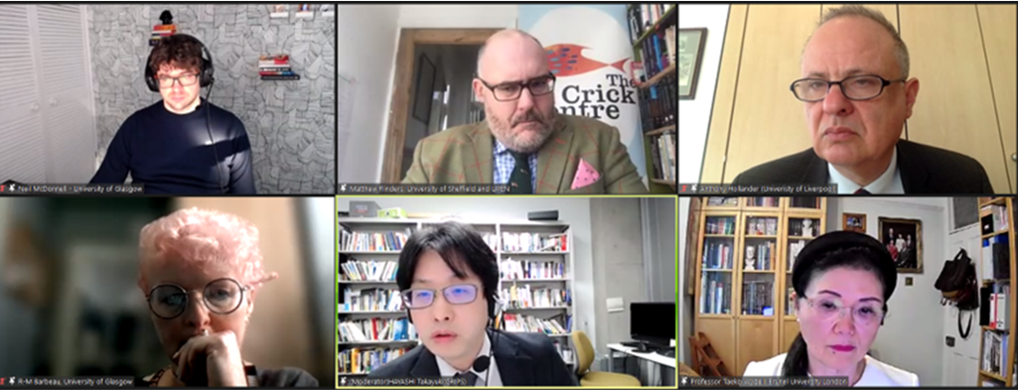
Panel discussion in the third part
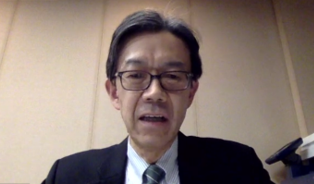
Dr. YAMAGUCHI Hiroki making the closing remarks |

Professor Janet Beer making the closing remarks |